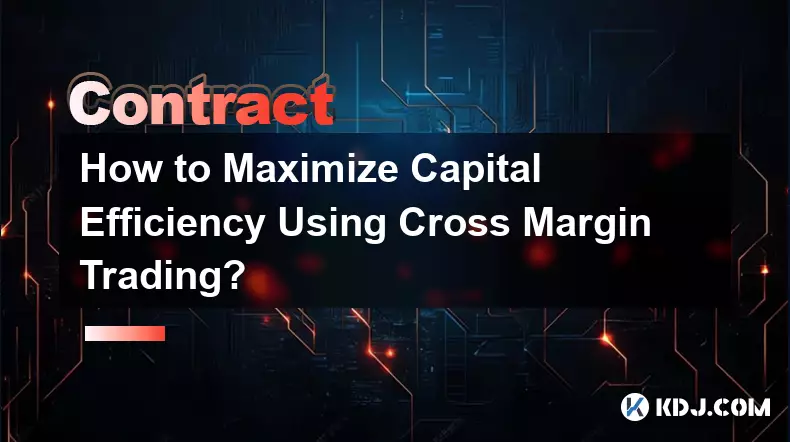-
 bitcoin
bitcoin $87959.907984 USD
1.34% -
 ethereum
ethereum $2920.497338 USD
3.04% -
 tether
tether $0.999775 USD
0.00% -
 xrp
xrp $2.237324 USD
8.12% -
 bnb
bnb $860.243768 USD
0.90% -
 solana
solana $138.089498 USD
5.43% -
 usd-coin
usd-coin $0.999807 USD
0.01% -
 tron
tron $0.272801 USD
-1.53% -
 dogecoin
dogecoin $0.150904 USD
2.96% -
 cardano
cardano $0.421635 USD
1.97% -
 hyperliquid
hyperliquid $32.152445 USD
2.23% -
 bitcoin-cash
bitcoin-cash $533.301069 USD
-1.94% -
 chainlink
chainlink $12.953417 USD
2.68% -
 unus-sed-leo
unus-sed-leo $9.535951 USD
0.73% -
 zcash
zcash $521.483386 USD
-2.87%
How to trade Bitcoin contracts with leverage?
Leveraged Bitcoin trading allows traders to amplify their exposure to price movements without committing the full capital required, but it also carries significant risks that require cautious management.
Dec 05, 2024 at 10:36 am

Leverage trading involves employing borrowed funds to increase the potential returns of a trade. In the context of Bitcoin trading, leverage allows traders to amplify their exposure to price movements without committing the full amount of capital required for an unleveraged trade.
Step 1: Choose a Suitable ExchangeSelect a cryptocurrency exchange that supports leveraged Bitcoin trading. Some of the reputable exchanges include:
- Binance
- Coinbase Pro
- Kraken
- Huobi Global
These platforms offer a wide range of leverage options and tailored trading tools to cater to diverse trading strategies.
Step 2: Understand Leverage RatiosLeverage ratios represent the ratio of borrowed funds to the trader's own capital. For example, a 10:1 leverage ratio indicates that the trader can borrow funds equivalent to 10 times their initial investment.
Higher leverage ratios amplify both profits and losses, making it crucial for traders to exercise caution and manage risk accordingly.
Step 3: Deposit FundsFund your exchange account with the cryptocurrency you wish to trade, such as Bitcoin (BTC). Ensure that you deposit sufficient funds to cover your potential margin and trading fees.
Step 4: Open a Margin Trading AccountMost exchanges require traders to open a separate margin trading account for leveraged trading. Follow the exchange's instructions to create an account and enable margin trading.
Step 5: Configure LeverageSpecify the leverage ratio you wish to use for your trade. Remember that higher leverage ratios increase both potential profits and losses. It is recommended for beginners to start with a lower leverage ratio, such as 2:1 or 5:1, and gradually increase it as they gain more experience.
Step 6: Place Your TradeChoose the type of Bitcoin contract you want to trade, such as a perpetual or futures contract. Then, specify the size of your position and the entry price. Most exchanges provide order types such as market orders, limit orders, and stop orders to suit different trading strategies.
Step 7: Monitor Your PositionLeveraged positions require continuous monitoring as they can amplify losses and profits rapidly. Track the performance of your trade and adjust your leverage or position size as needed to manage risk and secure profits.
Step 8: Close Your PositionExit your trade when you wish to realize your profits or losses. Close your position at the desired exit price to complete the trade and settle any outstanding margin or trading fees.
ConclusionLeveraged trading can be a powerful tool for experienced traders to enhance returns, but it also carries significant risks. Understanding how to trade Bitcoin contracts with leverage is crucial for success. By following these steps carefully and managing risk prudently, traders can harness the potential benefits of leverage to maximize their trading potential.
Disclaimer:info@kdj.com
The information provided is not trading advice. kdj.com does not assume any responsibility for any investments made based on the information provided in this article. Cryptocurrencies are highly volatile and it is highly recommended that you invest with caution after thorough research!
If you believe that the content used on this website infringes your copyright, please contact us immediately (info@kdj.com) and we will delete it promptly.
- Butuo County Puts the Brakes on Virtual Currency Mining: Sichuan's Latest Crackdown
- 2026-02-05 15:55:01
- Beyond the Neon Glow: Ethereum Casinos Set New Standards for Fair Play, Fees, and Speed
- 2026-02-05 15:30:07
- CME Group Navigates Crypto Tides: Own Coin, 24/7 Trading Amidst Market's Reckoning
- 2026-02-05 16:05:01
- Bitcoin Faces Liquidity Test Amid Shifting Institutional Support Landscape
- 2026-02-05 13:05:01
- Volkswagen Tayron R-Line 7-Seater: A New Era of Luxury Family SUV Hits India
- 2026-02-05 13:00:01
- AI, Crypto Bounties, and Human Labor: The Shifting Landscape of Work
- 2026-02-05 13:00:01
Related knowledge

How to Manage Emotions and "Revenge Trading" in Futures?
Feb 05,2026 at 12:19am
Understanding Emotional Triggers in Futures Markets1. Market volatility directly impacts psychological states, often amplifying fear or euphoria based...

How to Use Candle Close Confirmation for Futures Entry?
Feb 05,2026 at 04:20pm
Understanding Candle Close Confirmation1. A candle close confirmation occurs when the final price of a candlestick settles beyond a predefined level, ...

How to Analyze Market Sentiment Using the Fear and Greed Index?
Feb 05,2026 at 07:40am
Understanding the Fear and Greed Index1. The Fear and Greed Index is a composite metric designed to quantify prevailing emotional states among cryptoc...

How to Use Volume Profile to Find Key Futures Entry Levels?
Feb 04,2026 at 11:39pm
Understanding Volume Profile Structure1. Volume Profile displays the distribution of traded volume at specific price levels over a defined time period...

How to Trade Bitcoin Futures with 100x Leverage? (High-Risk Setup)
Feb 05,2026 at 11:00am
Understanding Bitcoin Futures Mechanics1. Bitcoin futures contracts represent agreements to buy or sell BTC at a predetermined price and date in the f...

How to Maximize Capital Efficiency Using Cross Margin Trading?
Feb 05,2026 at 12:40am
Cross Margin Trading Fundamentals1. Cross margin trading allows traders to use their entire account balance as collateral for open positions across mu...

How to Manage Emotions and "Revenge Trading" in Futures?
Feb 05,2026 at 12:19am
Understanding Emotional Triggers in Futures Markets1. Market volatility directly impacts psychological states, often amplifying fear or euphoria based...

How to Use Candle Close Confirmation for Futures Entry?
Feb 05,2026 at 04:20pm
Understanding Candle Close Confirmation1. A candle close confirmation occurs when the final price of a candlestick settles beyond a predefined level, ...

How to Analyze Market Sentiment Using the Fear and Greed Index?
Feb 05,2026 at 07:40am
Understanding the Fear and Greed Index1. The Fear and Greed Index is a composite metric designed to quantify prevailing emotional states among cryptoc...

How to Use Volume Profile to Find Key Futures Entry Levels?
Feb 04,2026 at 11:39pm
Understanding Volume Profile Structure1. Volume Profile displays the distribution of traded volume at specific price levels over a defined time period...

How to Trade Bitcoin Futures with 100x Leverage? (High-Risk Setup)
Feb 05,2026 at 11:00am
Understanding Bitcoin Futures Mechanics1. Bitcoin futures contracts represent agreements to buy or sell BTC at a predetermined price and date in the f...

How to Maximize Capital Efficiency Using Cross Margin Trading?
Feb 05,2026 at 12:40am
Cross Margin Trading Fundamentals1. Cross margin trading allows traders to use their entire account balance as collateral for open positions across mu...
See all articles























![KING vs PAINIFY😳 (1v1 ZONEWARS) [FORTNITE TOKEN/WAGER] KING vs PAINIFY😳 (1v1 ZONEWARS) [FORTNITE TOKEN/WAGER]](/uploads/2026/02/05/cryptocurrencies-news/videos/origin_6984035326d58_image_500_375.webp)
![2/4 [U.S. Hot Search] CIA: Xi Jinping is a paranoid | Xi Jinping’s two phone calls | Shandong’s “Internet-addicted” teenagers rebelled against tyranny | A direct attack on the Chengdu hacker national team | Why GDP must grow by 5% | The bridge under construction by the China Railway 12th Bureau collapsed | Thousands of billions of dollars spent abroad and thirty billion domestic subsidies | 2/4 [U.S. Hot Search] CIA: Xi Jinping is a paranoid | Xi Jinping’s two phone calls | Shandong’s “Internet-addicted” teenagers rebelled against tyranny | A direct attack on the Chengdu hacker national team | Why GDP must grow by 5% | The bridge under construction by the China Railway 12th Bureau collapsed | Thousands of billions of dollars spent abroad and thirty billion domestic subsidies |](/uploads/2026/02/05/cryptocurrencies-news/videos/origin_69840a757417b_image_500_375.webp)

















































